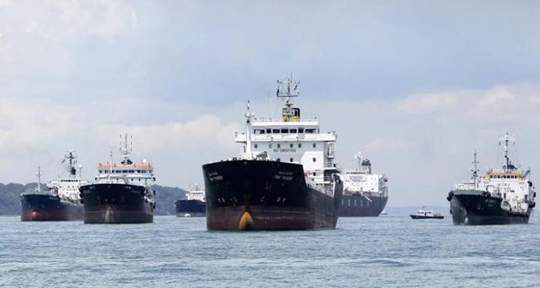Istanbul, Apr 28: Global energy markets are heading to a rebalancing in the next few years after oil prices fell to historic lows due to oversupply, Qatar’s Energy and Industry Minister Mohammed Saleh Abdullah Al-Sada said on Thursday, praising members of the Organization of Petroleum Exporting Countries (OPEC) for their adherence to a “successful” November deal to cut production.

He told the Atlantic Council summit in Istanbul that a decade of high oil prices had led to a dangerous oversupply and subsequent price falls.
“The consequence was an unprecedented shrinkage in investment and if that trend continues, it will lead to new instability — a price spiral and a tightening of the market which is not in anyone’s interest,” he warned.
OPEC members agreed in November to cut production by 1.2 million barrels per day for six months beginning from the start of the year in a bid to shore up prices.
The move was also partly matched by non-OPEC producers led by Russia and the critical question is whether OPEC will take new action at its next meeting on May 25 or not.
“A balancing was bound to happen. What we want to do is to hasten that process of balancing,” said the minister.
He hailed the fact that compliance to the November agreement has been almost 98 percent including all participants, and had sometimes been over 100 percent among OPEC members, meaning they had exceeded the output cuts demanded.
Compliance has historically been a problem within OPEC and Al-Sada said that adherence to past agreements had been on average only 70 percent. “The agreement was very successful and it helped the process of rebalancing,” he said.
“It (the market) is picking up. We hope to get a more accelerated balancing process in the second half of the year.”
Al-Sada said the rebalancing was coming but would still take time.
“The market today is well supplied and will be for the next years. The upturn is definitely going to come and the market will balance, yes, not in the coming two years but in four or five.”
Oil prices currently hover just around $50 per barrel after shedding around half of their value since mid-2014.
Al-Sada denied that low oil prices were of benefit to anyone.
OPEC Secretary-General Mohammad Barkindo, meanwhile, said that a global oil overhang was declining, but he added that stocks remained high and needed to fall further. OPEC is discussing extending its cuts into the second half of the year, but the group has an uphill task.
Oil prices fell on Thursday after news that two key oilfields in Libya had restarted, pumping crude for export into an already bloated market.
Benchmark Brent crude fell $1.14 a barrel to a low of $50.68 before recovering slightly to trade around $50.85 by 1220 GMT. The contract has fallen more than 10 percent from this month’s peak.
US light crude oil hit a low of $48.51, down $1.11 a barrel on the day.






.jpg)
.jpg)
Comments
Add new comment